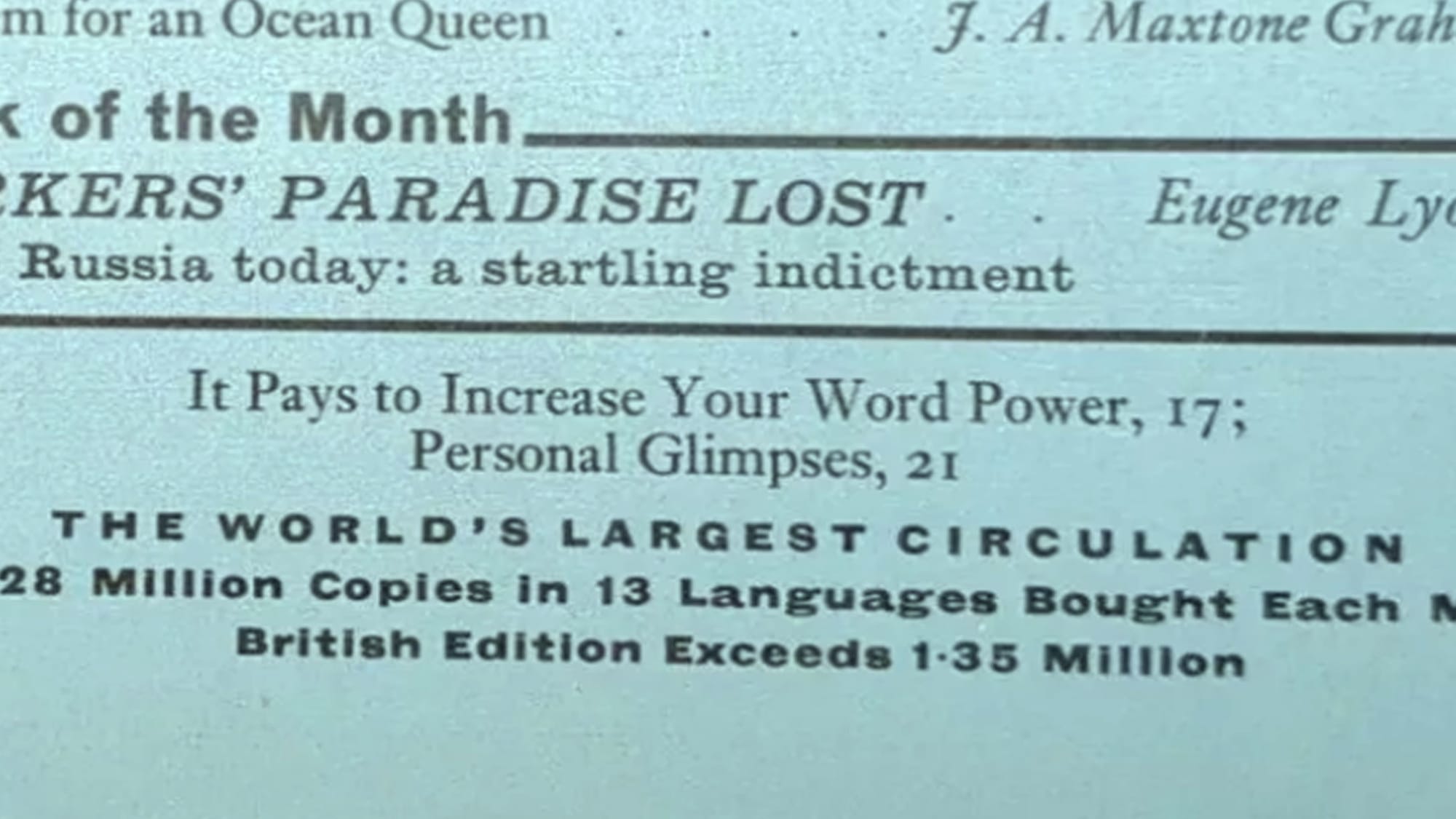Speaking distinctively / Baking dramatically

Today: Kọ́lá Túbọ̀sún, Nigerian linguist, writer, translator, founder of Olongo Africa, and writer and producer of the documentary, Ebrohimie Road; and Carrie Frye, writer and book editor at Black Cardigan Edit.
Issue No. 106
Delving Into Reader's Digest
Kọ́lá Túbọ̀sún
A Tart Summer Slice
Carrie Frye
Delving Into Reader's Digest
by Kọ́lá Túbọ̀sún
A few weeks ago, I read that Reader’s Digest (U.K.) was shutting down after 86 years. I’ve returned to the news several times since then, to remind myself of what Reader’s Digest meant to my earliest memory of reading.
Àkóbọ̀, where I grew up in Ìbàdàn, Nigeria, is what one might call a village—at least it was in the early ’80s; it’s since grown into a densely populated neighbourhood of more than a hundred thousand people. My parents had chosen Àkóbọ̀ for its quietness, well away from the bustle of town nearby. “From the Bashorun bridge,” my mother would recall, “you could see maybe two or three new roofs in the village, and one of them was ours.” The others belonged to friends with whom they’d decided to take a respite from urban life. They lived amid the original villagers, whose mud houses had thatched roofs, and who were indifferent to modern amenities. To the villagers, these educated newcomers—alákọ̀wé, they must have called them, a playful-derisive word for “book people”—must have cut a strange figure. But the contacts between them all were cordial. Village people made the best versions of the local food, and often hawked treats around the neighbourhood for the alákọ̀wés to buy.
By the time I arrived on the scene, the fifth of six children, my father’s career as a writer and broadcaster was in full bloom, but the books and toys in the house had survived four earlier children and many relatives, and so retained nothing of their earlier sheen. The bicycle was a wreck, but was passed on to me anyway. The books were worn; and I’d discover them, often by accident, in hidden places around the house. Father perhaps exasperated by the lack of care with which books he’d bought were treated, simply took back control and made his private study off-limits for the children. It was the only way he could retain control over those he had left.
It’s a paywall, but a small one
Read this post and get our weekdaily newsletter for $3 a month
